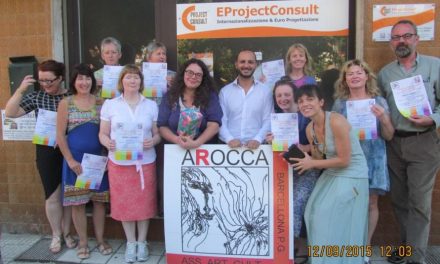NALA Numeracy Conference
By: Eileen O’Flaherty
Tutor, Tralee Centre
The annual Numeracy Conference was hosted by NALA in Trinity College Dublin on Tuesday, 30th May 2017. Inez Bailey – CEO of NALA – was the first speaker and she informed us that NALA is aware that there is not enough work being done in the area of Numeracy and this is not all because of a lack of funding. Learners seem to focus more on Literacy and do not demand Numeracy opportunities. NALA are concerned that there seems to be little Numeracy going on “on a stand-alone basis” but that there does seem to be more of an integrated approach. She also said that there is an ongoing review of standards at QQI Levels 2 and 3 and that the content is quite narrow. NALA is keen to keep it learner-centred by ensuring real world concepts are being embraced through the content at both levels.
Jill Brown, of the Controlled Schools’ Support Council, Belfast spoke on “Promoting learning in mathematics using digital technologies”. She posed the question “Do we embrace or resist technology?” She answered by saying that neither approach is correct – instead we need to reflect on what are the most effective teaching methodologies that promotes effective learning! She also stressed the importance of encouraging learners to look at different strategies for problem solving. She gave various examples of real life concepts of getting learners to evaluate the best value in multi-pack offers e.g. two for the price of one offers, ten driving lessons for €200 etc.
However, being a critically reflective practitioner myself, I would have to say that Jill Brown did not suggest that learners be encouraged to reflect on actual quality of goods/services. I believe it is important to reflect on quality – cheap is NOT always good and can end up more costly in the long run.
Niall O’Connor, Maths and Computer Studies teacher at Le Cheile Secondary School, Dublin spoke on the flipped numeracy classroom: How it’s done and why it works. In basic terms content is devised, presented and recorded at home by the teacher. It is then sent to the learners and they view it, taking notes using the Cornell University system of note taking. Contact hours in the classroom can then be used more efficiently by focusing on any problem areas the students may have. He stressed that this method emphasises the importance of content progress rather than grades. Every video is linked to a syllabus point and Gold/Silver/Bronze digital badges are given at the end of a topic. At most he uses three or four Apps for his methodologies he creates at home.
As usual it’s great to network with colleagues from all over Ireland and also to share resources. Here are some:





